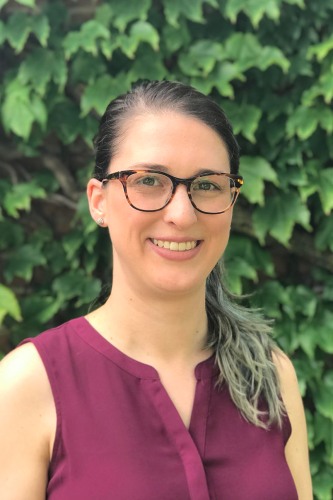
Marie Schenk
Biography
Marie's dissertation explores how everyday political discussions in online spaces shape political identity. She earned a masters in data science in 2021 through Brown's Open Graduate Education Program. Her research pulls from both disciplines, employing machine learning techniques and big data as well as survey research to shed light on American political behavior. Additional research interests include civic engagement, political socialization, descriptive representation, and quantitative methods. Her work has appeared in State Politics and Policy Quarterly (with Cory Manento) and the Journal of Health Politics, Policy and Law (with Paul Testa and Susan Moffitt). Prior to coming to Brown, she spent several years as a paralegal and served as an AmeriCorps VISTA member. She holds a B.A. in Government, cum laude, from Smith College and a M.A. in Political Science from Brown.
Job Market Title
America Online: Everyday Talk and Conflict Orientation in Online Communities
Abstract
High uptake of social media has facilitated the creation of virtual communities that are simultaneously geographically diffuse and topically highly specific, giving citizens new opportunities to talk together. Scholars and citizens alike have decried the tendency of social media sites to funnel users into homogenous spaces devoid of the kinds of substantive disagreements that make citizens more knowledgeable and tolerant (Mutz 2002). At the same time, some online spaces are marked by rampant and fierce disagreement. Often, however, these conflict-prone spaces fail to provide any of the resolution that is fundamental to the process of deliberative democracy. In what online spaces are people exposed to political talk and political disagreement? What role does one’s orientation toward conflict play in determining what online spaces one uses? In this paper, I explore the extent to which different kinds of nonpolitical online spaces become spaces of informal political discussions, or “everyday talk” (Mansbridge 1993). Using evidence from a nationally representative survey conducted on the YouGov platform, I revisit findings of Wojcieszak and Mutz (2009) to explore how people engage with online communities and how often they encounter political discussions in those groups. I find that most people are in nonpolitical groups, though a sizable number of people (about 30%) report spending most of their time in a political group. I build on these findings by using a measure of conflict orientation that includes a positive and a negative dimension (Testa, Hibbing, and Ritchie 2014) to understand who is spending time in online groups and what kinds of political talk they are exposed to there. I find that those who opt in to political talk in online groups exercise the most discretion in choosing what level of conflict they encounter. Those in nonpolitical groups, by contrast, see more political disagreements as they see more political discussions, regardless of their preexisting orientation towards conflict. Even though people who dislike conflict can avoid it, they are not exposed to significantly less political talk and political disagreement than people who thrive on conflict. This means that nonpolitical online communities are potentially valuable spaces of political talk and civic learning for their members.